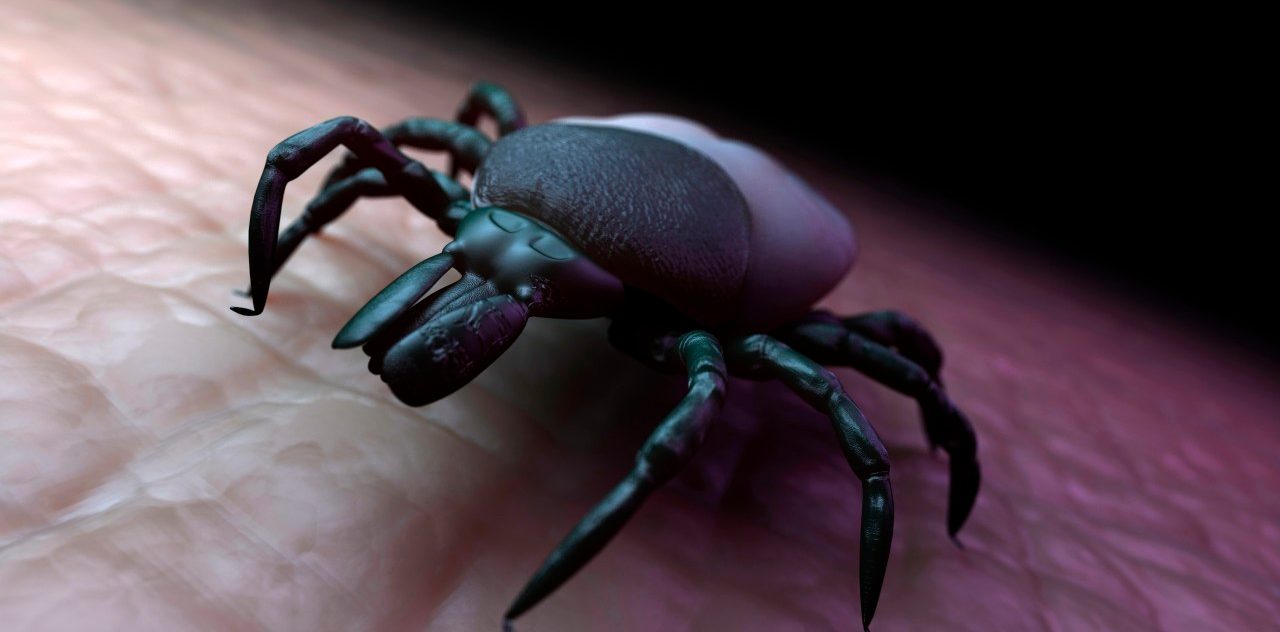Another Tick-borne Disease Risk: Powassan Virus

Powassan virus may be spreading. It can cause brain damage and even death — but you can protect yourself from Powassan by avoiding ticks.
Almost everyone has heard of Lyme disease, Rocky Mountain spotted fever, and some other illnesses spread by ticks. But one tick-borne disease, Powassan virus, has seldom been in the news because it has been so rare. Only about 75 cases of the infection have been reported over the past decade in the U.S., according to the Centers for Disease Control and Prevention (CDC).
YOU MIGHT ALSO LIKE: Symptoms of Lyme Disease
However, there’s concern Powassan is becoming not-so-rare anymore.
The Powassan virus is named after a small town in Canada where a child became ill in l958 with brain inflammation. Doctors in Ontario identified a never seen before virus, Powassan, as the cause. Since then, most cases of Powassan have occurred in the Northeast and Great Lakes region. But warmer winters have caused deer ticks, the same type of ticks that transmit Lyme disease, to thrive and spread to other areas. And a recent study of ticks by Columbia University scientists, along with some newly reported cases of Powassan, indicate the disease may be spreading.
Because the virus can cause serious and even deadly consequences, it’s important to get the facts about this tick-borne illness and learn how to protect yourself from getting it in the first place.
Unlike Lyme and other tick-borne diseases in the U.S., Powassan is not caused by bacteria. Instead, it is a virus in the flavavirus family (which includes Zika and West Nile viruses), so antibiotics are not effective in treating it. In fact, there are no vaccines or drugs to prevent or treat infection with Powassan, according to the CDC.
Powassan virus symptoms
Not everyone infected with Powassan virus becomes sick, but some develop symptoms that include fever, vomiting, and headache. And, for others, the virus may be deadly.
Powassan can infect the central nervous system and cause membranes around the brain and spinal cord to become inflamed (meningitis); it can cause brain swelling (encephalitis), too. The result can be loss of coordination, seizures, and weakness. At least half of Powassan survivors end up with permanent neurological symptoms, including headaches, memory problems, and muscle wasting. What’s more, about 10 percent of people who develop encephalitis from Powassan die.
How to avoid ticks
The only way to prevent Powassan, along with other tick-borne illnesses like Lyme disease, is to proactively avoid ticks. The CDC advises staying out of wooded and brushy areas with high grass and leaf litter where the blood-sucking creatures are more likely to be found. And use tick repellents that contains ingredients approved by Environmental Protection Agency (EPA). The EPA has an online tool to help you select the repellent best for you and appropriate for children.
If you’ve spent time outdoors in an area that could have ticks, bathe or shower as soon as possible after you return home and conduct a full body tick inspection to search for ticks. Check your children and pets carefully, too. The CDC points out ticks can cling to clothing and backpacks, so examine them for ticks, as well. It’s a good idea to wash clothing worn in outdoors in hot water to kill any attached ticks, too.
If you do find a tick on yourself, your child, or pet, remove the tick with tweezers using steady pressure. Then clean the bite area with soap and water, rubbing alcohol or an iodine scrub. Dispose of a live tick by dunking it in alcohol and flushing it down the toilet, or place it in a sealed bag or container.
It takes between a week and a month for any symptoms from Powassan virus to develop after a tick bite. If you think you or someone in your family could have contracted Powassan or another tick-borne illness, contact your doctor for evaluation and treatment.
Powassan virus treatment
Although there’s no specific treatment for Powassan, people who develop severe symptoms from the virus often are hospitalized where support and medications can help reduce brain swelling and, hopefully, lower the risk of permanent neurological damage.
YOU MIGHT ALSO LIKE: How to Protect Yourself Against Tick-borne Diseases
Updated:
June 15, 2017
Reviewed By:
Janet O’Dell, RN